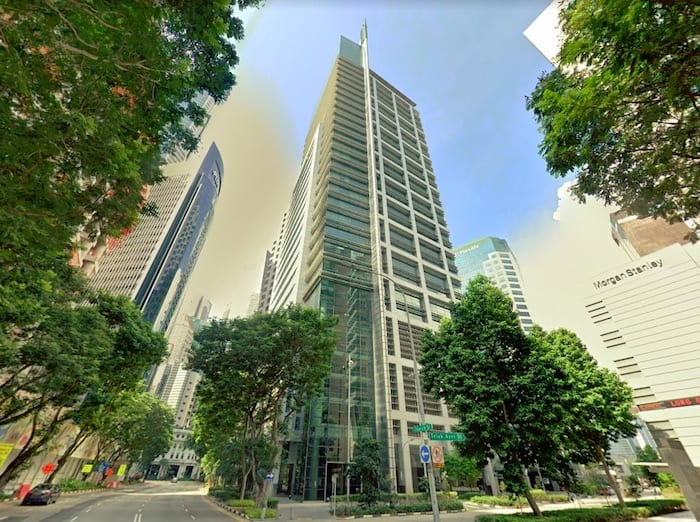
Sun Venture sold the 11th fl of Samsung Hub for S$50 mil
Property investment collapsed in Singapore in the first three months of the year, as the COVID-19 pandemic threatened to pitch the city into its first recession in two decades.
Sales of hospitality assets disappeared completely, while office investments plunged to S$183 million ($129 million) — down 81 percent from the previous three months and just a quarter of the transaction volume that was recorded in the same period in 2019, according to Cushman & Wakefield.
Real estate investment overall fell to just S$3 billion during the first three months of this year, retreating by one-third from the S$4.5 billion recorded during the same period last year.
Dealmaking Dries Up
“Big ticket commercial transactions were absent in the first three months of 2020, a direct result of the COVID-19 pandemic and the rapid sell-off in stock markets across the globe,” said Christine Li, Cushman & Wakefield’s head of research for Singapore and Southeast Asia.
The largest transaction recorded during the period, according to Cushman & Wakefield, was Ascendas REIT’s S$102.9 million purchase of Mitsui’s 25 percent stake in the Galaxis office complex in the One-North area during March.
Li said sellers held back from lowering prices in the hope that the market would rebound once the pandemic was contained, while buyers waited on the sidelines as the prospect of a global recession raised the potential for future discounts.
Despite the scarcity of deals, sellers of strata office assets were still finding buyers, with the largest such transaction during the quarter being local investment manager Sun Venture’s S$50 million sale of the eleventh floor of the Samsung Hub office tower during February.

Cushman & Wakefield’s Christine Li said there were no big ticket transactions during the quarter
A South Korean high net worth individual paid the equivalent of S$3,800 per square foot for the 13,100 square foot (1,217 square metre) asset in Singapore’s central business district, ranking the transaction as the city’s most expensive strata sale on a price per square foot basis within the last five years.
A month before that deal, Hong Realty – which is controlled by Hong Leong Group – flipped the tenth floor in Suntec Tower One to Hong Kong’s Rosa family for S$37.1 million — a 26 percent markup over the S$29.5 million that the unit of billionaire Kwek Leng Beng’s Hong Leong Group had paid to acquire the property in 2018.
Focusing on Bite-size Deals
“We are probably going to see more bite-sized investment deals in the second quarter and into the second half of 2020,” said Shaun Poh, Cushman & Wakefield’s executive director and head of capital markets in Singapore.
Despite the downturn, Poh noted that no distressed assets had come onto the market yet, largely because of the government’s stimulus packages for the retail and hospitality sectors.
However, the Cushman & Wakefield Singapore capital markets chief said that investors may return to the market once the government’s “circuit breaker” measures, with all non-essential services closed down for a 28-day period, are lifted as they “begin to have a better grasp of the market situation and are in a better position to calculate their sums”.
Attracting Cautious Bids
Residential investment sales – including government land awards – doubled from the previous quarter to reach S$2.02 billion during the period from January through March, with analysts from both Cushman & Wakefield and Colliers International noting the predominance of plot sales as a percentage of total investment, as trades of other assets dried up.
During the period, government land sales, which were dominated by tenders for residential projects, accounted for 68 percent of the total investment volume, according to according to Cushman & Wakefield. Colliers noted that residential investment led all sectors during the first quarter for the first time in nearly two years and accounted for 51 percent of total trades.
These government land deals included Frasers Property’s purchase last month of a public-private executive condominium development in northeastern Singapore for S$287 million as well as UOL Group’s S$270 million acquisition of a condo development site in northern Singapore.
“Developers’ sentiment is still cautious, judging from the relatively robust number of bidders but subdued bid prices during the public land tenders,” said Tricia Song, Colliers’ head of research for Singapore.
New figures released by the Singapore government on Wednesday reveal the slowest March for home sales in five years, with only 660 units finding buyers – a 37 percent drop from the same month last year.
“Assuming there is no further extension of the circuit breaker period, developer sales are expected to range between 6,900 to 7,900 units for the whole of 2020, about 20 percent to 30 percent lower compared to 2019’s tally of 9,912 units,” said Wong Xian Yang, Cushman & Wakefield’s associate director of research for Singapore and Southeast Asia.
Predicting a Second Half Comeback
Despite forecasts that overall property investment volumes will drop by as much as a quarter over the whole year, market analysts stress that the fundamentals of Singapore’s property market remain strong.
“The commercial sector remains the most attractive for investors — short-term disruption could offer long-term opportunities,” said Colliers’ senior director of capital markets in Singapore, Jerome Wright, while adding that investors should “remain on the look-out for assets and position for a recovery”.
A significant rebound in the second half of the year may be possible, according to Wright, given Singapore’s strong policy response to COVID-19 which has reinforced the city’s status as safe haven for investment.
Leave a Reply